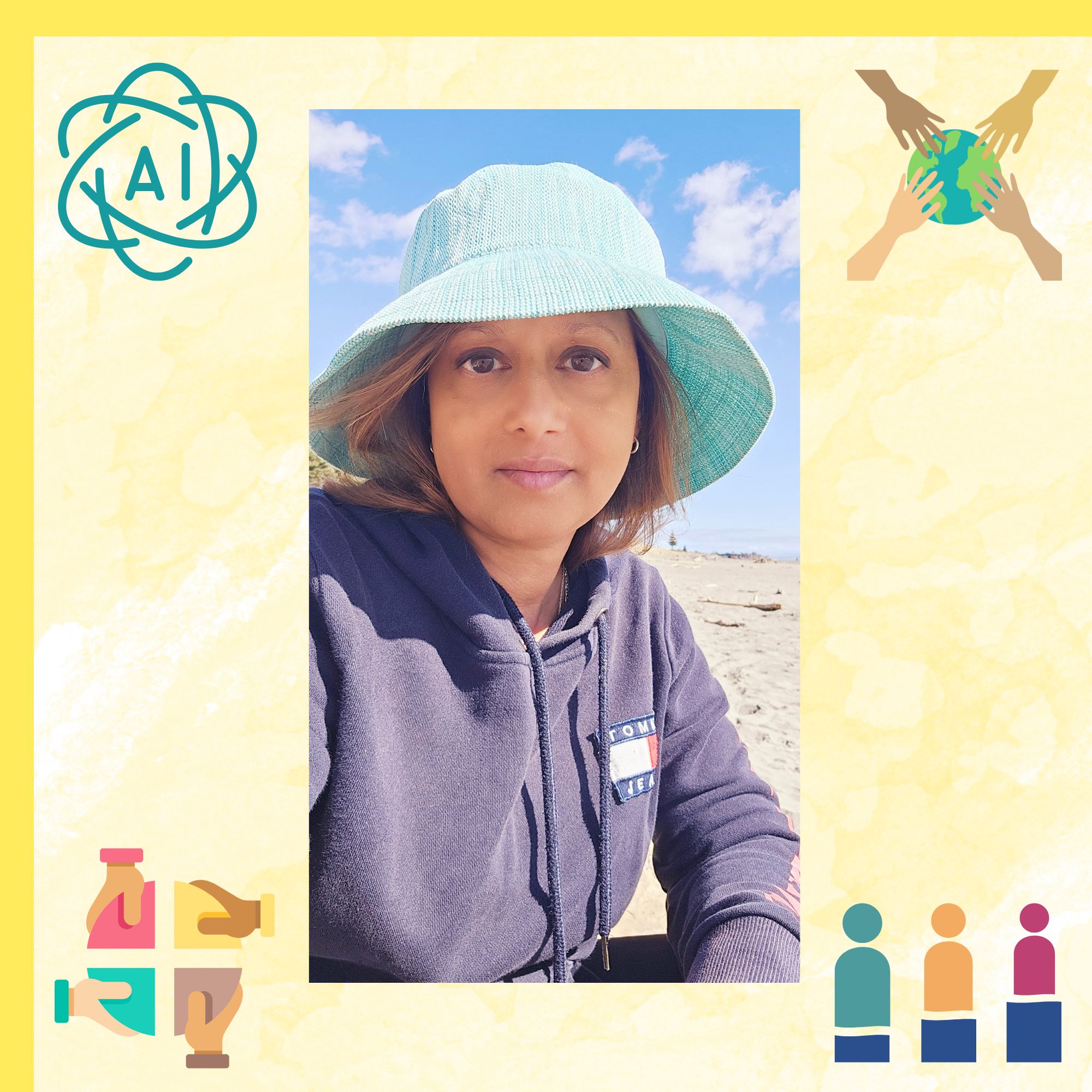We have accumulated a lot of amazing friends over the years. Equity strategist and AI governance researcher, Natasha Stillman, is one of our latest exciting collaborators. With hands on experience of working for government departments in New Zealand, and particularly on issues surrounding AI ethics and public health in the midst of a pandemic period, Natasha gracefully accepted an interview with us. Now, here’s her story.
Who are you, and what’s your background?
My name is Natasha J. Stillman and I’m an AI Governance researcher and equity strategist. Most recently, I hail from Aotearoa New Zealand, “land of the long white cloud” and hobbits! I also like to describe myself as an adventuress, musician, teacher, storyteller and dreamer. I have worked across multiple private and public sectors, including in education, civic governance, cross-cultural communication, and public health policy. I currently sit on the committee of GOVIS New Zealand (Government Information Systems Managers) and am a member of the AI Governance Working Group, AI Forum New Zealand.
We understand that you’re interested in AI ethics – tell us a bit about that.
My interest in AI ethics grew from working on policy and equity during the COVID-19 pandemic, where I saw firsthand that how one uses technology could either bridge gaps or widen them, especially in consideration of a country’s priority populations and underrepresented and underserved groups. My father was a doctor and I grew up watching my mother work tirelessly with special needs children. Their dedication to service of equity which stemmed from both of their deep ethical convictions really had a profound effect on what kind of service I wanted to spend my life doing. Then, when I went to uni and grad school, I rooted my education firmly in the humanities because I believe, and still believe, that understanding people and stories is essential to building just systems.
Upon years of reflection and ensuing research and experience in AI governance and policy, the crux of the matter that I’ve settled on is: How do we govern technologies in ways that reflect the best of our humanity? We’re so concerned with doing things in the fastest, most efficient manner, we completely lose the human element, and worse, we’re choosing to lose it. It’s so crucial to design systems that actively uphold dignity, inclusion, and justice. Ethics shouldn’t simply be an afterthought or a check box one puts in a policy. It should be built in from the beginning and embedded in the code. We need to find a way to embed ethics in the institutional cultures, policies, and values that shape our AI technology. This is why I have chosen to focus on governance, in order to help the people who make decisions about technology do so with foresight, and accountability, and most of all, empathy.
You visited Finland recently, why?
I was given the opportunity for a research visit to the University of Turku School of Economics, under the guidance of Professors Matti Mäntymäki and Matti Minkkinen of the Digital Economy and Society Research Group. It was an opportunity to work with amazing academics whose work I enormously respect and it was an opportunity to explore organizational frameworks for AI governance and to contribute to broader academic discussions on how institutions are adapting to emerging technologies and rethinking their governance structures in response and how to move forward in these rapidly evolving socio-technical times.
What are some of your thoughts on Finland, and its relationship to AI ethics?
When I think about moving forward with what is important to me and I suppose a mission-driven life, I look to places and environments where that work has the possibility to be encouraged and facilitated. In my opinion, Finland has been standing up initiatives in areas that matter to me and are crucial to addressing issues AI ethics. For example, TENK (the Finnish National Board on Research Integrity) has a current project addressing the ethical challenges posed by AI in research. An initiative that especially stands out to me is the work of the Finnish Non-Discrimination Ombudsman that recently launched a project in conjunction with the EU Council of Europe that focuses on identifying and mitigating discrimination risks in AI systems. As an educator, I have been completely over-the-moon at the release of The ABC Book of Media Literacy by NMF (News Media Finland) to all 9th graders in Finland last year. It’s so vital to begin these conversations on how to recognize and resist misinformation, and to think critically about digital environments shaped by algorithms with kids because it absolutely ethical groundwork that we can’t afford to overlook.
These are just a few of the kinds of initiatives that, to me, mean that Finland is not only attempting to directly address AI Ethics, but also trying to build the conditions that make it possible to do so.
What is it about the University of Vaasa that makes you feel it has important positioning in relation to AI ethics?
I first connected with the University of Vaasa through Dr. Rebekah Rousi and serendipitously was able to meet her personally at the book launch of Humane Autonomous Technology: Re-thinking Experience with and in Intelligent Systems; if you haven’t read it yet, do. One of the main themes in this multidisciplinary display of timely research is the ethical implications of AI and autonomous systems. This prompted me look into the University of Vaasa and its alignment to themes important to me like equity and AI ethics. To my mind, AI ethics must be approached with as much interdisciplinarity as possible, because in the world we live in, none of these systems work in isolation because they are shaped by people, cultures, and institutions.
What drew me to the University of Vaasa is that it is set up to encourage exploration of these intersections and treats this technological shift as evolving within social, ethical, and communicative tectonic plates in the understanding that this is all shaping how we live in this environment, relate to each other, and govern our populations. I believe that this willingness to research in openness and collaboration between the schools, departments and research groups is key to how we are going to navigate this technoscape moving forward. AI ethics shouldn’t be some abstract, uncommunicable ideal; it should be shared effort that engenders collective practice across the board. When we work together across disciplines and lived experiences in academia, we can set an example and communicate that ethical governance is the way. I think the University of Vaasa is managing to encourage an environment that says: “It takes a village”. And, that is exactly what we need to navigate AI Ethics today and for the future.
And, why is VME so special?
VME is a research community that encourages conversation and collaboration. Often, in professional spaces, whether public or private sector, we don’t have the luxury to undertake intellectual risk or the wherewithal for emotional honesty. These are increasingly crucial to have in tech-focused research that should involve meaning, care and complexity. VME is special because it gathers people from across disciplines and industries into an accessible and welcoming, higher learning space. When you can bring together students, teachers, companies, researchers together to flex their imagination, unencumbered intellectually in a workshop setting, there is freedom to have conversations about how we live with technology and to be able to collaborate on how we can build it to enhance societal values. For me, championing systems that reflect the lived realities of diverse people, I see the VME’s inclusivity making for the perfect arena for ethics and equity-infused inquiry, exploration, and potential.
If you could describe the future of AI ethics in one term/phrase, what would it be?
We need to govern AI in ways that fundamentally reflect the best of humanity in order to give all of humanity its best chance. – NjS





